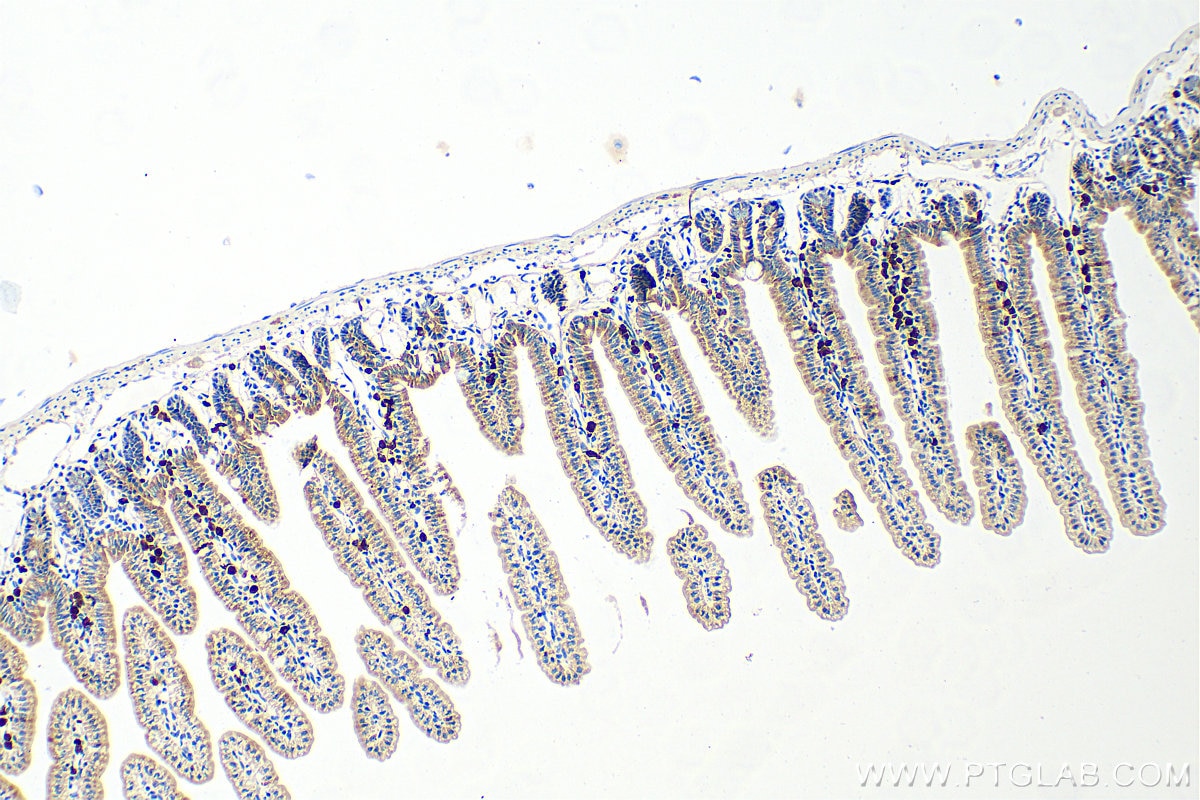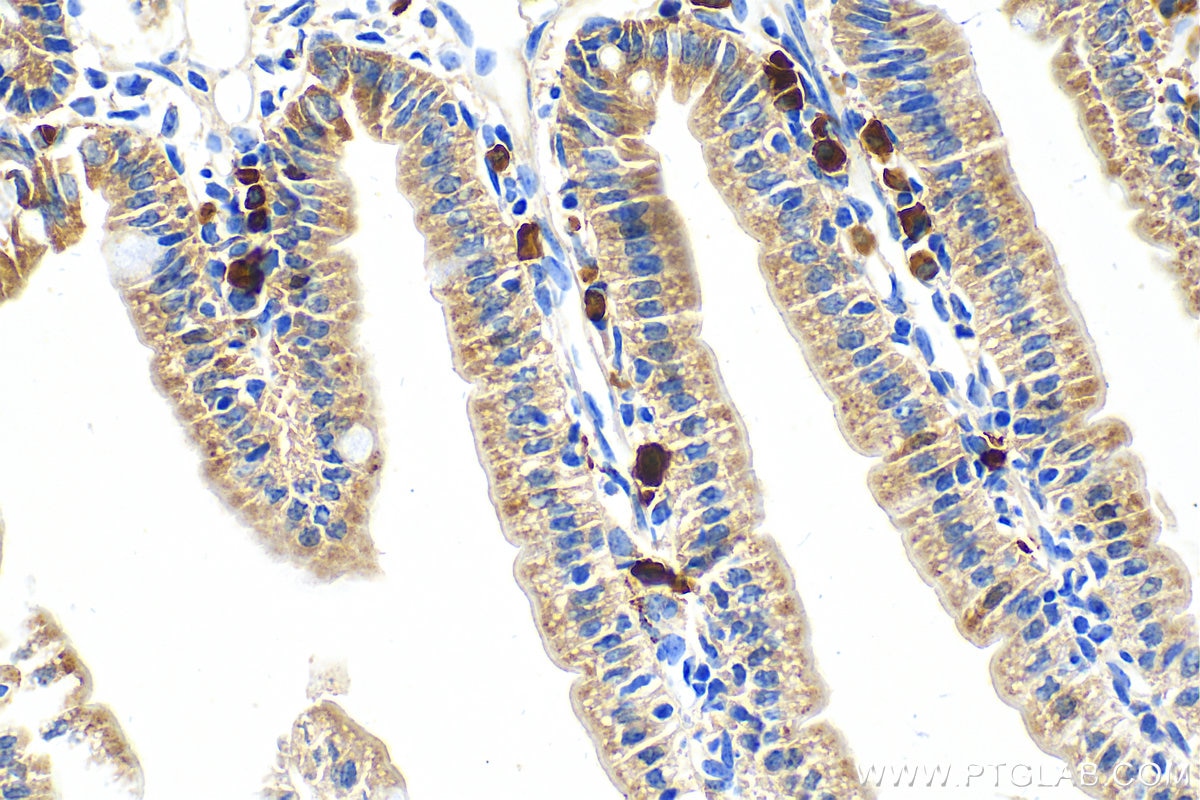Anticorps Polyclonal de lapin anti-S100G/Calbindin-D9k
S100G/Calbindin-D9k Polyclonal Antibody for IHC, ELISA
Hôte / Isotype
Lapin / IgG
Réactivité testée
Humain, souris
Applications
IHC, ELISA
Conjugaison
Non conjugué
N° de cat : 18340-1-AP
Synonymes
Galerie de données de validation
Applications testées
| Résultats positifs en IHC | tissu d'intestin grêle de souris, il est suggéré de démasquer l'antigène avec un tampon de TE buffer pH 9.0; (*) À défaut, 'le démasquage de l'antigène peut être 'effectué avec un tampon citrate pH 6,0. |
Dilution recommandée
| Application | Dilution |
|---|---|
| Immunohistochimie (IHC) | IHC : 1:50-1:500 |
| It is recommended that this reagent should be titrated in each testing system to obtain optimal results. | |
| Sample-dependent, check data in validation data gallery | |
Informations sur le produit
18340-1-AP cible S100G/Calbindin-D9k dans les applications de IHC, ELISA et montre une réactivité avec des échantillons Humain, souris
| Réactivité | Humain, souris |
| Hôte / Isotype | Lapin / IgG |
| Clonalité | Polyclonal |
| Type | Anticorps |
| Immunogène | S100G/Calbindin-D9k Protéine recombinante Ag13109 |
| Nom complet | S100 calcium binding protein G |
| Masse moléculaire calculée | 79 aa, 9 kDa |
| Numéro d’acquisition GenBank | BC112174 |
| Symbole du gène | S100G |
| Identification du gène (NCBI) | 795 |
| Conjugaison | Non conjugué |
| Forme | Liquide |
| Méthode de purification | Purification par affinité contre l'antigène |
| Tampon de stockage | PBS with 0.02% sodium azide and 50% glycerol |
| Conditions de stockage | Stocker à -20°C. Stable pendant un an après l'expédition. L'aliquotage n'est pas nécessaire pour le stockage à -20oC Les 20ul contiennent 0,1% de BSA. |
Informations générales
S100G also named calbindin D9K, is a vitamin D-dependent calcium-binding protein. This cytosolic protein belongs to a family of calcium-binding proteins that includes calmodulin, parvalbumin, troponin C, and S100 protein. In the intestine, the protein is vitamin D-dependent and its expression correlates with calcium transport activity. The protein may increase Ca2+ absorption by buffering Ca2+ in the cytoplasm and increase ATP-dependent Ca2+ transport in duodenal basolateral membrane vesicles.
Protocole
| Product Specific Protocols | |
|---|---|
| IHC protocol for S100G/Calbindin-D9k antibody 18340-1-AP | Download protocol |
| Standard Protocols | |
|---|---|
| Click here to view our Standard Protocols |



